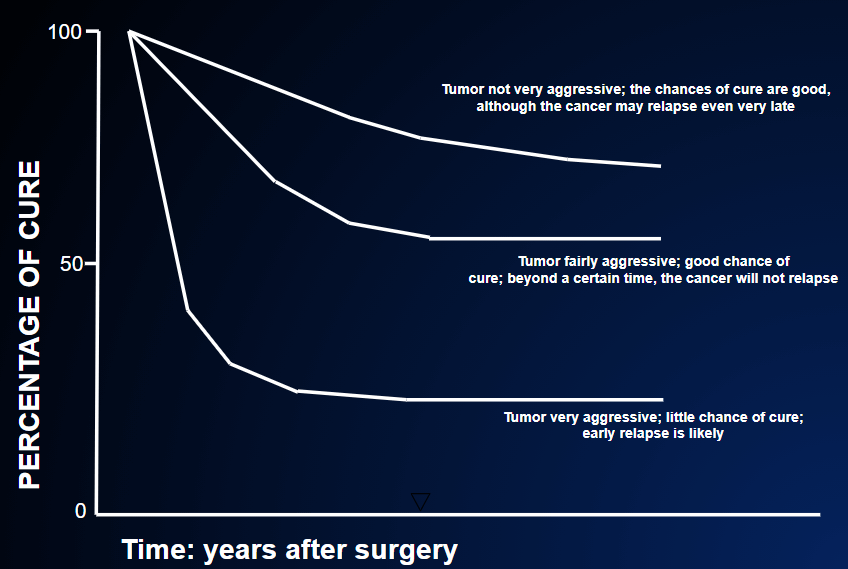The only “good thing about cancer” is that, when patients are cured, their life expectancy returns to “normal”. So, if a 40-year-old patient is cured, he can live for another 40-50 years, provided he doesn’t have other diseases or accidents.
When can we say that the patient has been cured? Simple: when enough time has elapsed the surgical operation that recurrence of the disease is no longer possible. And how long is that? Here, the answer is more complicated. Indeed, every tumor has its own time. FIGURE 12

Not only: within each type of tumor, there are some variants (called “histological types”), and each of these may have different times in which to relapse. Finally, even within each histological type, different tumor stages have different times of relapse.
In general, tumors that are in advanced stages when diagnosed and surgically removed, if they relapse, will relapse much sooner than those in the early stages. This means that a stage-3 tumor has a higher risk of relapse than a stage-2. However, if the stage-3 tumor does not relapse within a few years, the probability that it will is actually lower than that of a stage-2 tumor.
Moreover, very aggressive tumors, such as those of the pancreas or stomach, generally have shorter times to relapse. This means that if an aggressive tumor does not relapse within the first 4-5 years, it will be very unlikely to do so later. For this reason, we can apply this time limit when we say that the patient has been cured. In the case of other tumors, such as those of the colon or ovary, it is more prudent to use a time limit of 7-8 years. Other tumors again, such as certain tumors of the breast or kidney, may relapse even after a very long time, which means that we can never be completely sure even 10 years after surgery. If you look at FIGURE 12, you will clearly see that the curve flattens out (indicating cure) much later in breast cancer than in pancreatic cancer.
Although the times of relapse may be different, most relapses occur within the first 2-3 years after surgery in all tumors. Indeed, no more than 10-20% of relapses occur after 3 years. Therefore, while the initial risk of relapse was high (about 50%), after the first 3 years without relapse, the chances of cure become very good. Nevertheless, absolute certainty does not exist.
